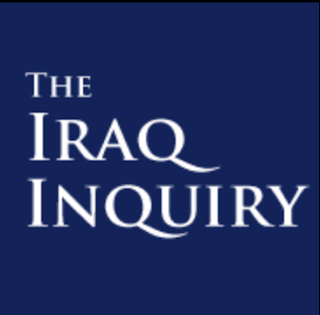Section 9.7 of the Chilcot Inquiry covered the end of the British presence in Iraq. It dealt with two main issues. First was the aftermath of Prime Minister Nuri al-Maliki’s Charge of Knights security operation against Moqtada al-Sadr’s Mahdi Army militia in Basra. The second was the timetable for the U.K.’s withdrawal from the country.
British reports from May-June 2008 found mixed results from Charge of Knights in Basra. One Joint Intelligence Committee report from May 14 said the operation had raised the standing of Prime Minister Maliki who was now seen as more of a nationalist than sectarian. Sadr’s militia on the other hand was severely weakened in the province. A May 30 assessment said there were still attacks on police in Basra and Iranian backed Special Groups were still targeting the British. The UK was hoping that Charge of Knights would open the door for economic development but that didn’t happen because of continued insecurity, lack of capacity within the Iraqi government, corruption, laws, political parties, crime and the lack of a entrepreneurs because most of the middle class had fled due to militias. That meant while security improved there were few other real changes in the province.
Like the Americans the main priority of the British was to withdraw from Iraq. This was supported by PM Maliki who said he wanted coalition forces out as soon as possible. On October 13 the premier gave an interview to the London Times where he said UK troops were no longer necessary in Iraq. He also accused the British army of selling out to the Mahdi Army. This was a reference to the deals the Brits made with Sadrists. They basically turned over much of Basra city to the Mahdi Army in return for allowing them to move to the airport in 2008.
London wanted a withdrawal agreement with Baghdad. At the end of December 2008 Iraq’s parliament agreed to allow Coalition countries to stay in Iraq until July 2009. Prime Minister Gordon Brown wanted that deadline to be extended but he couldn’t get his own legislature to agree. This still satisfied Brown who wanted out of Iraq as soon as possible.
This period reflected the failures of the UK in Iraq. From the very start of its occupation of southern Iraq it made deals with militias thinking that they could be co-opted. That never happened and the Mahdi Army became the main threat to British forces. Maliki did more to the Sadrists in two months in 2008 than the UK did over 5 years. The desire to withdraw also undermined most of the Brit’s effort in Iraq. It never spent the time or money to achieve most of its goals because its ultimate priority was to leave. It now had a date set for that.
SOURCES
The Iraq Inquiry, The Report of the Iraq Inquiry, 7/6/16
PREVIOUS CHILCOT REPORTS
Review The Report of the Iraq Inquiry, Executive Summary
Chilcot Inquiry Sec 1.1 UK Iraq Strategy 1990 To 2000
Chilcot Inquiry Section 1.2 UK Iraq strategy September 2000 To September 2001
Chilcot Inquiry Section 3.3 Development of UK Iraq Strategy and Options, April to July 2002
Chilcot Inquiry Section 3.6 Development of UK Strategy and Options, November 2002 to January 2003
Chilcot Inquiry Section 3.7 Development of UK Strategy and Options, 1 February to 7 March 2003
Chilcot Inquiry Section 3.8 Development of UK Strategy and Options, 8 to 20 March 2003
Chilcot Inquiry Section 4.1 Iraq WMD Assessments, Pre-July 2002
Chilcot Inquiry Section 4.2 Iraq WMD Assessments, July to September 2002
Chilcot Inquiry Section 4.3 Iraq WMD Assessments, October 2002 to March 2003
Chilcot Inquiry Section 4.4 The Search For WMD
Chilcot Inquiry Section 5 Advice On The Legal Basis For Military Action, November 2002 To March 2003
Chilcot Inquiry Section 6.1 Development of the Military Options for an Invasion of Iraq
Chilcot Inquiry Section 6.2 Military Planning For The Invasion, January to March 2003
Chilcot Inquiry Section 8: The Invasion
Chilcot Inquiry Section 9.1 March to 22 May 2003
Chilcot Inquiry Section 9.2 May 2003 To June 2004
Chilcot Inquiry Section 9.3 July 2004 To May 2005
Chilcot Inquiry Section 9.4 June 2005 To May 2006
Chilcot Inquiry Section 9.5 June 2006 To 27 June 2007
Chilcot Inquiry Section 9.6 28 June 2007 To April 2008





No comments:
Post a Comment